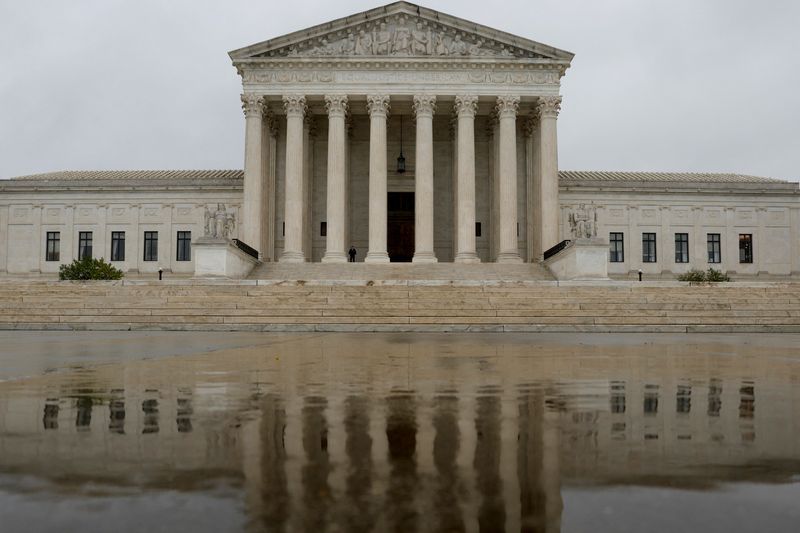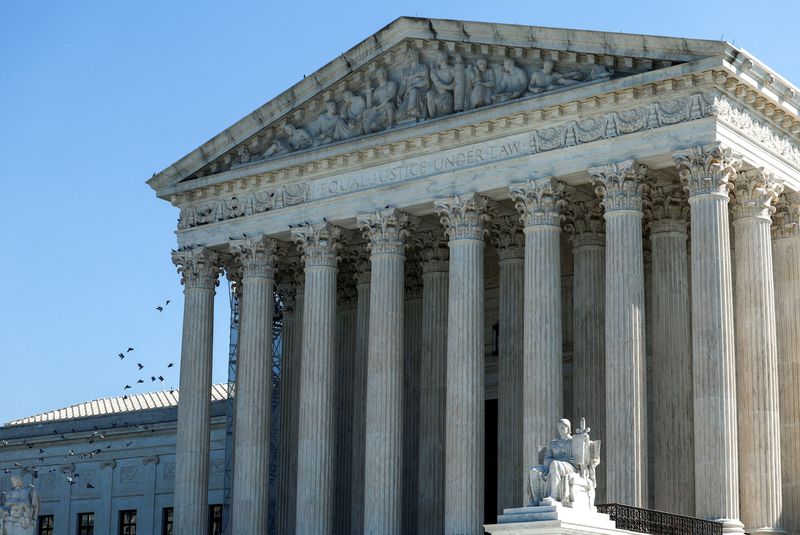By John Kruzel
WASHINGTON (Reuters) -The U.S. Supreme Court, addressing free speech rights in the digital age, decided on Friday that government officials can sometimes be sued under the Constitution's First Amendment for blocking critics on social media.
In unanimous decisions in two cases from California and Michigan, the justices set a new standard for determining if public officials acted in a governmental capacity when blocking critics on social media - a test to be applied in lawsuits accusing them of violating the First Amendment.
First Amendment protections for free speech generally constrain government actors, not private individuals. Under the new test, officials are considered to have engaged in governmental action if they had "actual authority to speak on behalf of the state on a particular matter" and "purported to exercise that authority in the relevant posts."
The justices threw out decisions by lower courts in the two cases involving lawsuits brought under the First Amendment by people who were blocked after posting criticisms on the social media accounts of local officials. The justices directed the lower courts to revisit the cases based on the new standard.
Blocking users is a function often employed on social media to stifle critics. The Supreme Court previously confronted the issue in 2021 in litigation over former President Donald Trump's effort to block critics on X, called Twitter at the time, but failed to decide the matter by deeming the case moot after he left office.
Thomas Berry of the Cato Institute, a libertarian think tank that had filed a brief in the cases, praised how the justices on Friday navigated the competing interests at stake.
"The court's approach strikes a reasonable balance between the general public's right to access official state communications and the rights of government officials to exercise their own private speech," Berry said.
Evelyn Danforth-Scott of the ACLU, a civil rights advocacy group that supported both sets of plaintiffs in the cases, also welcomed the outcome.
"It underscores that the First Amendment still restricts how the government can shape speech when that speech takes place on social media," Danforth-Scott said. "And it gives everyday Americans a way to hold officials constitutionally accountable when they censor social media content, restrict access to it, or improperly elevate certain viewpoints over others."
FIRST AMENDMENT CLAIMS
The plaintiffs in both cases claimed their First Amendment rights had been violated.
In the California case, two public school board trustees from the city of Poway appealed a lower court's ruling in favor of parents who sued them after being blocked from the accounts of the officials on X and Facebook, which is owned by Meta Platforms (NASDAQ:META).
In the Michigan case, Port Huron resident Kevin Lindke appealed after a lower court ruled against his lawsuit challenging a city official who blocked him on Facebook.
Conservative Justice Amy Coney Barrett authored the Supreme Court's Michigan case ruling. Its California ruling was unsigned. President Joe Biden's administration had sided with the officials in both cases.
The California case involved Michelle O'Connor-Ratcliff and T.J. Zane, elected trustees of the Poway Unified School District. They blocked Christopher and Kimberly Garnier, the parents of three students at district schools, after the couple made hundreds of critical posts on issues including race and school finances.
Zane and O'Connor-Ratcliff had public Facebook pages identifying them as government officials. The parents sued them in 2017. A federal judge ruled that the parents' First Amendment rights were violated. The San Francisco-based 9th U.S. Circuit Court of Appeals agreed.
In the Michigan case, Lindke sued in 2020 after City Manager James Freed blocked him from his public Facebook page following critical posts concerning the COVID-19 pandemic. Freed's account also was a public Facebook page identifying him as a public figure.

A federal judge ruled in favor of Freed. The Cincinnati-based 6th U.S. Circuit Court of Appeals agreed.
The justices are expected to issue rulings by the end of June in other important cases involving speech on social media. One involves a challenge to Republican-backed state laws limiting the ability of social media platforms to remove or moderate content deemed objectionable or misinformation. Another involves a bid to prevent Biden's administration from encouraging such content moderation.
